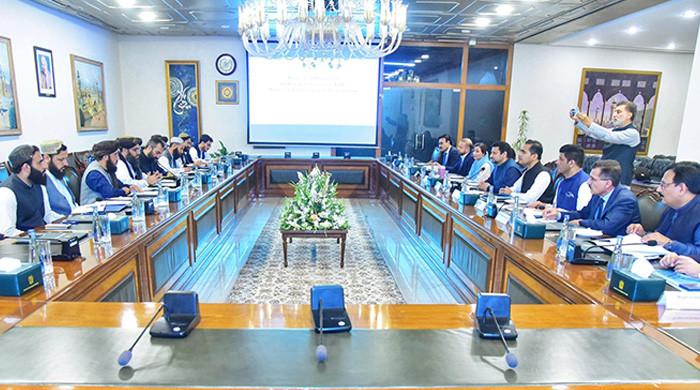Pakistan and Afghanistan Collaborate to Enhance Cross-Border Movement
On Monday, Pakistan and Afghanistan reached a consensus on collaborative initiatives aimed at reinforcing the regulated transit of people across their shared borders.
This agreement emerged during the inaugural session of the additional secretary-level engagement between the respective foreign ministries, convened in Islamabad, according to an official statement.
These discussions were a direct outcome of Deputy Prime Minister and Foreign Minister Senator Ishaq Dar’s visit to Afghanistan on April 19.
Ambassador Syed Ali Asad Gillani, Additional Secretary (Afghanistan & West Asia), headed the Pakistani delegation, while the Afghan delegation was led by Mufti Noor Ahmad Noor, Director General, First Political Division of Afghanistan’s Ministry of Foreign Affairs.
Key areas of mutual interest were addressed, including trade and transit cooperation, security concerns, and infrastructural connectivity. Both parties acknowledged terrorism as a substantial risk to regional stability.
The Pakistani side highlighted the critical need for tangible measures against terrorist organizations operating within Afghanistan, emphasizing that these groups pose a threat to Pakistan’s security and impede regional progress.
The participants engaged in discussions focused on enhancing cooperation in trade and transit activities.
They assessed the advancement of measures introduced during DPM Dar’s visit to Kabul, aimed at easing Afghan transit trade. These measures included the elimination of a 10% processing fee, the introduction of an insurance guarantee, streamlined scanning procedures, and the implementation of a track and trace system.
The importance of improved regional connectivity for sustained growth and shared prosperity was emphasized.
Recognizing the strategic importance of the Uzbekistan-Afghanistan-Pakistan Railway, both sides committed to working towards the prompt finalization of the framework agreement, according to the statement.
The matter of repatriating Afghan citizens was also addressed.
Pakistan provided an overview of its efforts to facilitate documented travel from Afghanistan, noting the issuance of over 500,000 visas since January 2024 for medical, tourist, business, and educational purposes.
Both parties reiterated their commitment to ongoing dialogue to tackle shared challenges.
They affirmed that enduring security is essential for regional development and improved bilateral relations.
The decision was made to schedule the next round of additional-secretary talks at a mutually agreeable time.



Comments (0)
No comments yet. Be the first to comment!
Leave a Comment